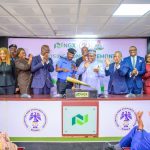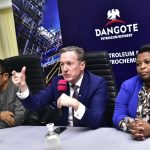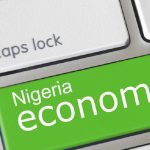Feature/OPED
The Dialogue: Tompolo and Aziza Deity, Vows Fulfilment and the 119 Years Birthday Celebration in the Forest of the Gods
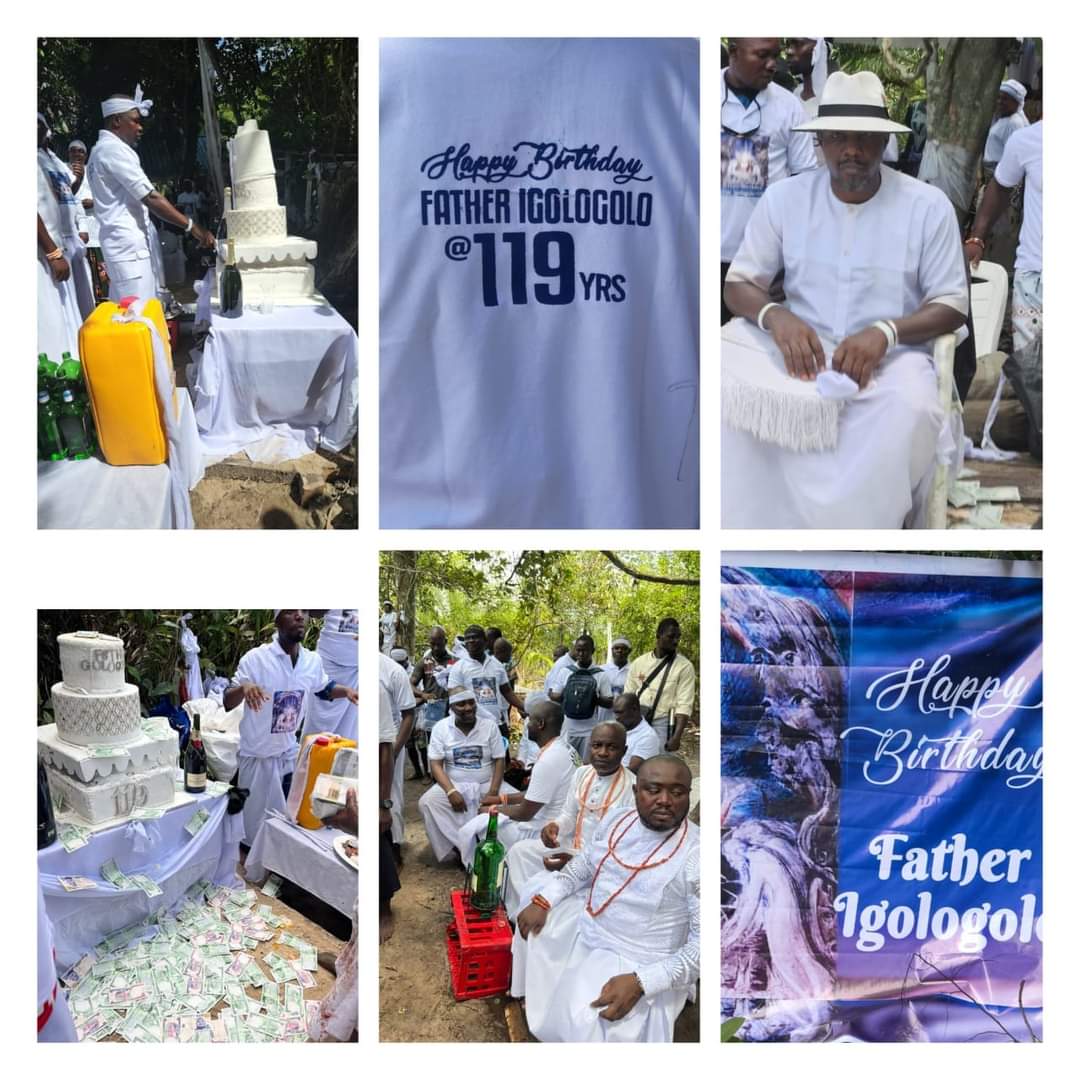
Asiayei Enaibo
AZIZA Father Igologolo, Aferekiripon! I dip my fingers into your pot of power to redeem my father’s vow made before your sacred altar in the days of antiquity before I came to see the light of the Earth when I was you, and now I am you, then you in your mercy made my father smile before men of this land. In your greatness, the emblem of your Lion existed in my flesh and soul, I have come in human flesh to say thank you as a gatekeeper to man and the gods.
I came through your passage, and you made me spirit in human form while you are the lion I represent here. Eferekirikpon! Igologolo! What men or human offence I have done, you can’t hurt yourself from whom I am sent to do the will I am here on Earth.
Man is nothing before you, and you are both day and night through your words, I have come to fill the vacuum in Ijaw nation. I came to build your temples on the lips and hearts of men for what I am sent for so that generations upon generations of our heritage will not go into extinction, and your values will return; that is the will of the gods and God to man. For you made me God’s begotten son to be on Earth for 119 years as it is written before I was born. Yes, the holy book said 120 years for those who are pure in heart and do thou will, and you said 119 years, Aziza, Father Igologolo, you spoke to me in dreams and made your manifestation to celebrate my birthday, so I have come to do your wishes, for I am Oweizide Government Ekpemupolo aka Tompolo, the eyes of the gods, a messenger sent to do the ancient tradition and powers of Ijaw land. I have not brought any new deity to mankind, but to bring back what was before my coming, may you watch over me above the trials, temptations and persecution of man; AZIZA, the invisible forest where men and women do not play in vanity.
A man who finds pleasure in no other things than in the temples of the gods, what has been before his coming, for he has not invented any deity than what has been in existence before him and is Tompolo, not Aziza himself? Who has come to fulfil the words of the gods in Ijaw land as a vow to be accomplished?
Thunder, light, rain, rivers, estuaries, brooks and lakes move under the command of Nature in the divine order of time, open your ears, your eyes and your mind, for this message is the through essence of your purpose on earth, in love I made you be an instrument to open the pathway for the benefits of mankind, and it is a rare thing for humans to have an encounter with the gods in human form and generation will lack nothing, and their fears have been conquered. Aziza! The left hand with a white plate, a symbol of a full nation and riches, and the right hand a Mat; when you have done all that you have to do, in peace, you have built a shelter around your people so they could rest. Yes, Tompolo has built munificent temples of all ages for Ijaw traditional heritage and worship with extraordinary foresight.
Father Igologolo!
What is beyond you is beyond you; man is nothing before the gods, and when they come to speak to humans in a supernatural form, what the mere mundane man could see is doubt; the mysteries only unfold to the one with the garment of the gods is different from the mere mortal mind.
Tompolo is a deity, Eferekirikpon; he is the air from the breath of AZIZA, men who just gathered to drink, dance and eat, questioning their ignorance in a manner of innocence. I made men bow before you, to trust and love when they plan to kill you. I, your source, have fixed the years for you are unarmed; it has never happened to the gods over what they own and watches over. When your persecutors come after you, I shall always hide you under the waters, in the forest, and in the air to overcome all adversities.
All the believers gathered again with drums, and selected singers in their numbers took the day: for Tompolo had not said anything about this mysterious birthday party; not even Kariwei could know when He Eferekirikpon is set for his father’s work, Igologolo.
“When I wish to speak, I speak. I was not directed to speak yet,” Tompolo said.
AZIZA Deity is as old as mankind; in ancient days when man was not formed, the gods were with God when God gave them the assignment to watch over the earth and report back to Him– God, the affairs of man, men lose their consciousness in the pleasant affairs and forget about their purpose in the mundane existence. To correct this loss of man’s consciousness, the god AZIZA metamorphosed into a human form as a mystery with a special assignment in a period of 119 years to Tompolo. That is to say that in these years of AZIZA’s reign, Tompolo’s period on earth to return as a faithful representative is foregrounded. This is true in the realm of time in human existence.
Eferekirikpon
In the book of AZIZA Deity, the 119 years is not just for Tompolo alone but for all mankind, believers especially Aziza faithful, who are pure in spirit, passionate at heart and turn away from evil and wickedness will experience 119 years decreed by the gods.
Eferekirikpon! Igologolo!
The one that moves with the air, water and the land! It is actually a story whose sensibilities many will doubt as an untold mystery which came at the time AZIZA spoke to Tompolo himself in the human soul. He brought him, empowered him and manifested himself to be celebrated down the forest where the seeker-Father, Chief Osen Thomas Ekpemupolo, requested in the Kindness of AZIZA Deity, manifested in the highest realm in the history of man the bravest, the Lion, the king that made men kings. The lion who lives in both water and the earth, whom the Queen of all Queens BINI-EBI will love in all her powers in his earthly Sojourn.
The goddess loves the gods!
Who will not find this story funny as to how the gods requested to be celebrated in the forest? What is beyond you, and when the revelations are not made to Oweizide, our human theories could infer the premises that gods operate, their frequency is higher than man’s–for they are infallible.
In every mythology, when the gods make the manifestation with those who walk in their pathway, they become supernatural.
Yes, High Chief Thomas Osen Ekpemupolo, the father of High Chief Government Oweizide Ekpemupolo, aka Tompolo, made a solemn vow in ancient times in search of a male child in his dynasty who was at that time a traditionalist, faithful to the laws of nature, serve the gods of his progenitors in the Gbaramatu Kingdom, Okerenkoko community, yes many became fearful of Osen Ekpemupolo because of his belief in the supernatural, pour libations and set dining for the gods, a typical custodian of the Ijaw spirituality. Before the coming of the European Gospel of God, the Africans, the Ijaw of the Niger Delta region, already knew Woyin, Tamarau, Temewei and Egbesu, so dedicated that people called Osen a witch Doctor who solved people’s problems with prayers in his sacred temple. Those who believe him as Izon people hold faith in him for his morality and dedication to the gods of the land have made him naturally successful. But Chief Osen Ekpemupolo has a challenge: his wife has given birth to four beautiful girls without a male child, yes Ijaw cultural and spiritual values uphold firmly that it is the son of a man who bears the family name whenever he is no more. He possesses the heir heritage of his lineage, so the gods of the land had not failed his believers when they made sacred vows and cried unto them. The gods manifest their potent powers to humans at all times; it is so to Egbesu whatever positive thing you request, they come and make the manifestation either in human form or in the spiritual.
Yes, the deity he serves religiously prayed for people and made manifestations as people returned to his temple to say thank you to the gods for the fruit of the womb.
Yes, one day, Chief Osen, the Tonteriwei of the ancient Gbaramatu kingdom in Ijaw land, on a calm morning, left his house and his family deity and moved to the very calm forest where a deity in the Gbaramatu Kingdom where their forefathers prayed for blessings when they had pressing issues beyond their mortal understandings.
To seek answers for their needs for the gods of the land to bless them: drinks, snuff, and native chalks to speak to the great AZIZA deity, and in mental words, prayed and dropped the items from his praying hands and heart to seek for a male child and in return to come back to honour AZIZA for whom his heritage would be preserved for generations upon generations that AZIZA would forever be in the heart of man till the end of time.
Osen returned home to join his beautiful family, the league of female children the gods have blessed them beyond the eyes of Osen–so adorable! Sologha, his wife, later conceived a child, and she gave birth to a son. And the joy had no bounds! Thomas Ekpemupolo was so happy to name his son Oweizide meaning “I have given birth to a man.” In a thankful heart, he returns to thank the Aziza deity in the forest, Osen Ekpemupolo also gave an English name to his son as Government, –Government that will take care of my entire dynasty that has unbeatable powers and influence as a government with sovereign authority both lands, waters and air will obey his commands. Eferekirikpon beyond the understanding of man, AZIZA deity is Tompolo in human form to have come to correct the mundane errors of man in the pleasant earth created by God and the gods to watch over the affairs of man to obey the moral-spiritual laws of God. Such natural laws of God made human Flesh direct other humans by using supernatural beings in the form of a human beings to guide and save the affairs of a nation.
Yes, like the Jewish book of an Avatar Jesus, so Tompolo is the Avatar of AZIZA Deity; like the Greek mythology of Deus and Apollo gods, which the likes of Socrates manifested and after completing such assignment returned with many allegations but later humans discovered that they were supernatural beings that just came to give directives to a man on earth, so is Tompolo.
Many in their complex questions have asked who Tompolo is. Why did he have so much power and influence over the affairs of the gods of the land? Why did he know much about the gods and goddesses of Ijaw land? His humility and, his actions, his powers are only traceable to the Supernatural Aziza deity himself– for he is a god who moves with the air. What you plan, he sees; what you speak, he hears as he moves in both the air and waters. Eferekirikpon! Igologolo, the man that sees when he will Go back to his father, Igologolo. Zibaooooo! Ziba came and lit up all the sanctuaries for the gods.
Part 11
Why Tompolo Celebrated The Birth Of A Deity In The Forest Of Old In Gbaramatu Kingdom?
Have you ever seen someone who makes cakes and celebrates the birthday of a Deity in a forest?
It sounds absurd, and it looks funny, but it is a divine instruction revealed to Tompolo from the cradle of his existence.
Over the years, Tompolo Government Oweizide Ekpemupolo has never celebrated his birthday in any form since he was born on this Earth, but as he grows up with amazing contributions to the affairs of mankind, a philanthropist, a freedom fighter, a builder of a nation, a conqueror, a great hope to both the living and the death, many called him the living legend, the Lion of all lions, the gods in human form and Enaibo called him the “gods begotten son” the man with three eyes who have yes for his YES and no for his NO. His love for transforming the Niger Delta region made him the hero we all called him. So every 12th of April, the Ijaws, the Niger Delta region, Nigeria and Africans celebrate him, and GbaramatuVoice has epitomized April 12th as the World Tompolo’s Day of Peace. People in all spheres of life celebrate him with cakes and different gifts but the celebrant in absentia.
“Only once have I cut a birthday cake at Oporoza that Mr Matthew Tonlagha organized after coming out of the many persecutions by both the Federal Government and individuals for about six years (2015- 2020), yes all the Agadagbas gathered as custodians of the pristine tradition, so I appeared once as human flesh with many pressures, and the flesh must abide by it in some occasions.”
Yes, he never appeared and jubilated like others because the gods’ ways are different from the ways of mere mortals.
So, this year Aziza, Eferekirikpon! Father Igologolo appeared before his son Tompolo with a question in a dream: “Who are you to celebrate yourself when I have not celebrated you?” Tompolo woke up from the dream and slept again three consecutive times. Tompolo said, “Father Igologolo! I know you by your voice, I know I have not celebrated myself for anything on Earth, for your will shall be done, not mine. Humanity has celebrated me on different occasions. I can’t stop them from celebrating you, the Father.” AZIZA was silent for his mortal being and said, “I have come to celebrate you like others, for you have done well, it is 119 years, and as a faithful servant, you shall be on Earth to do the work of what I have sent you. In the forest where your father took the vows before you came, that is the venue where humanity shall join you in cutting the cake they have severally cut for you. A symbolic gesture to mark your existence that I am glad for you.”
So, Tompolo woke up from the dream in three days without the knowledge of his followers; polo shirts were printed, two beautiful cakes were presented at Aziza deity at both front and back, money was sprayed as the realm of celebration of AZIZA, Eferekirikpon! Father Igologolo, so the dance and singing took the day of 5th June 2023 in the forest of old Gbaramatu Kingdom to compliment the vows of Osen as Tompolo will be in this on Earth for 119 years.
In the thick forest of celebration, Samuel Ekpemupolo telepathically infused my soul to write this story after his Dialogue with Tompolo in the forest, and Aziza banged at my creative pen with inspirations from above and so below, so I write to preserve this history for the living Deity on Earth, High Chief Government Oweizide Ekpemupolo aka Tompolo.
Happy birthday to Eferekirikpon! Father Igologolo Aziza deity and High Chief Government Oweizide Ekpemupolo.
Asiayei Enaibo, the Talking Drum, is the SA to the High priest of the Ijaw Deities and Culture. He writes from the GbaramatuVoice media organisation
Feature/OPED
AU Must Reform into an Institution Africa Needs

By Mike Omuodo
From an online post, a commentator asked an intriguing question: “If the African Union (AU) cannot create a single currency, a unified military, or a common passport, then what exactly is this union about?”.
The comment section went wild, with some commentators saying that AU no longer serves the interest of the African people, but rather the interests of the West and individual nations with greedy interests in Africa’s resources. Some even said jokingly that it should be renamed “Western Union”.
But seriously, how has a country like France managed to maintain an economic leverage over 14 African states through its CFA Franc system, yet the continent is unable to create its own single currency regime? Why does the continent seem to be comfortable with global powers establishing their military bases throughout its territories yet doesn’t seem interested in establishing its own unified military? Why does the idea of an open borders freak out our leaders, driving them to hide under sovereignty?
These questions interrogate AU’s relevance in the ensuing geopolitics. No doubt, the AU is still relevant as it still speaks on behalf of Africa on global platforms as a symbol of the continent’s unity. But the unease surrounding it is justified because symbolism is no longer enough.
In a continent grappling with persistent conflict, economic fragmentation, and democratic reversals, institutions are judged not by their presence, but by their impact.
From the chat, and several other discussion groups on social media, most Africans are unhappy with the performance of the African Union so far. To many, the organization is out of touch with reality and they are now calling for an immediate reset.
To them, AU is a club of cabals, whose main achievements have been safeguarding fellow felons.
One commentator said, “AU’s main job is to congratulate dictators who kill their citizens to retain power through rigged elections.” Another said, “AU is a bunch of atrophied rulers dancing on the graves of their citizens, looting resources from their people to stash in foreign countries.”
These views may sound harsh, but are a good measure of how people perceive the organization across the continent.
Blurring vision
The African Union, which was established in July 2002 to succeed the OAU, was born out of an ambitious vision of uniting the continent toward self-reliance by driving economic Integration, enhancing peace and security, prompting good governance and, representing the continent on the global stage – following the end of colonialism.
Over time, however, the gap between this vision and the reality on the ground has widened. AU appears helpless to address the growing conflicts across the continent – from unrelenting coups to shambolic elections to external aggression.
This chronic weakness has slowly eroded public confidence in the organization and as such, AU is being seen as a forum for speeches rather than solutions – just as one commentator puts it, “AU has turned into a farce talk shop that cannot back or bite.”
Call for a new body
The general feeling on the ground is that AU is stagnant and has nothing much to show for the 60+ years of its existence (from the times of OAU). It’s also viewed as toothless and subservient to the whims of its ‘masters’. Some commentators even called for its dissolution and the formation of a new body that would serve the interests of the continent and its people.
This sounds like a no-confidence vote. To regain favour and remain a force for continental good, AU must undertake critical reforms, enhance accountability, and show political courage as a matter of urgency. Without these, it may endure in form while fading in substance.
The question is not whether Africa needs the AU, but whether the AU is willing and ready to become the institution Africa needs – one that is bold enough to initiate a daring move towards a common market, a single currency, a unified military, and a common passport regime. It is possible!
Mr Omuodo is a pan-African Public Relations and Communications expert based in Nairobi, Kenya. He can be reached on [email protected]
Feature/OPED
Recapitalisation: Silent Layoffs, Infrastructure Deficit Threat to $1trn Economy
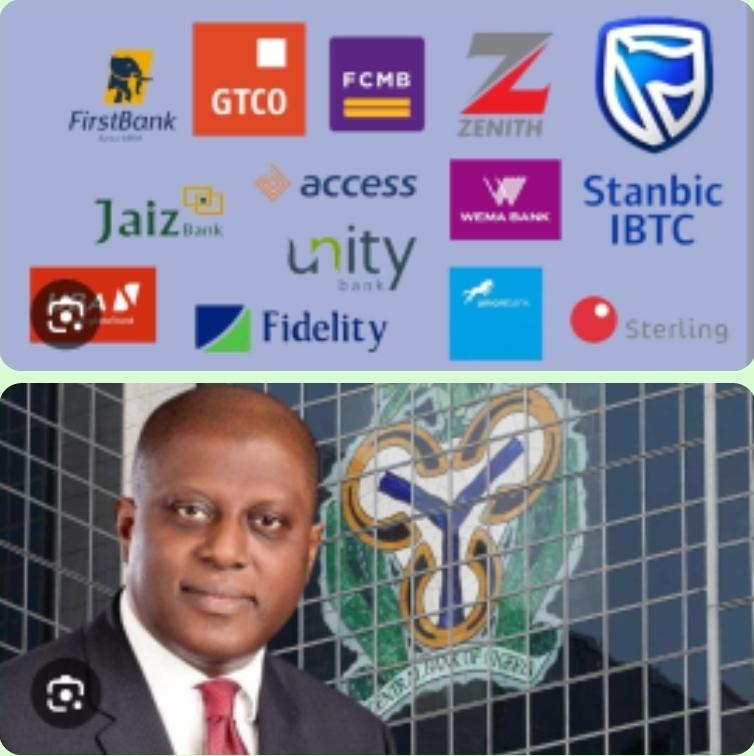
By Blaise Udunze
The Central Bank of Nigeria’s recapitalisation exercise, which is scheduled for a March 31, 2026, deadline, has continued to reignite optimism across financial markets and is designed to build stronger, more resilient banks capable of financing a $1 trillion economy. With the ongoing exercise, the industry has been witnessing bank valuations rising, investors are enthusiastic, and balance sheets are swelling. However, beneath these encouraging headline numbers, unbeknownst to many, or perhaps some troubling aspects that the industry players have chosen not to talk about, are the human cost of consolidation and the infrastructure deficit.
Recapitalisation often leads to mergers and acquisitions. Mergers, in turn, almost always lead to job rationalisation. In Nigeria’s case, this process is unfolding against an already fragile labour structure in the banking industry, one where casualisation has become the dominant employment model.
One alarming fact in the Nigerian banking sector is the age-old workforce structure raised by the Association of Senior Staff of Banks, Insurance and Financial Institutions (ASSBIFI), which says that an estimated 60 percent of operational bank workers today are contract staff. This reality raises profound questions about the sustainability of Nigeria’s banking reforms and the credibility of its economic ambitions.
A $1 trillion economy cannot be built on insecure labour, shrinking institutional knowledge, and an overstretched financial workforce.
Recapitalisation and the Hidden Merger Trap
History is instructive. Referencing Nigeria’s 2004-2005 banking consolidation exercise, which reduced the number of banks from 89 to 25, and no doubt, it produced larger institutions, while it also triggered widespread job losses, branch closures, and a wave of outsourcing that permanently altered employment relations in the sector. The current recapitalisation push risks repeating that cycle, only this time within a far more complex economic environment marked by inflation, currency volatility, and rising unemployment.
Mergers promise efficiency, but efficiency often comes at the expense of people. Speaking of this, duplicate roles are eliminated, technology replaces frontline staff, and non-core functions are outsourced. The troubling part of it is that this is already a system reliant on contract labour; mergers could accelerate workforce instability, turning banks into balance-sheet-heavy institutions with shallow human capital depth.
ASSBIFI’s warning is therefore not a labour agitation; it is a macroeconomic red flag.
Casualisation as Structural Weakness, Not a Cost Strategy
It has been postulated by proponents of job casualisation that it is a cost-control mechanism necessary for competitiveness. Contrary to this argument, evidence increasingly shows that it is a false economy. In reaction to this, ASSBIFI President Olusoji Oluwole, who kicked against this structural weakness, asserted that excessive reliance on contract workers undermines job security, suppresses wages, limits access to benefits and blocks career progression while affirming that over time, this erodes morale, loyalty, and productivity.
More troubling are the systemic risks. Casualisation creates operational vulnerabilities, higher fraud exposure, weaker compliance culture, and lower institutional memory.
One of the banking regulators, the Nigeria Deposit Insurance Corporation (NDIC), has not desisted from repeatedly cautioning that excessive outsourcing and short-term staffing models increase security risks within banks. On the negative implications, when employees feel disposable, ethical commitment weakens, and reputational risk grows.
Banking is not a factory floor. It is a trust business. And trust does not thrive in insecurity.
Inside Outsourcing Web of Conflict of Interest
Beyond cost efficiency, Nigeria’s casualisation crisis is also fuelled by a deeper governance problem, conflicts of interest embedded within the outsourcing ecosystem.
In many cases, bank chief executives and executive directors are reported to own, control, or have beneficial interests in outsourcing companies that provide services to their own banks. Invariably, it is the same firms supplying contract staff, cleaners, security personnel, call-centre agents, and even IT support. Structurally, this arrangement allows senior executives to profit directly from the same outsourcing model that strips workers of job security and benefits.
The incentive is clear. Outsourcing enables banks to maintain lean payrolls, bypass strict labour protections associated with permanent employment, and reduce long-term obligations such as pensions and healthcare. But when those designing outsourcing strategies are also financially benefiting from them, the line between efficiency and exploitation disappears.
This model entrenches casualisation not as a temporary adjustment tool, but as a permanent business strategy, one that externalises social costs while internalising private gains.
Exploitation and Its Systemic Consequences
The human impact is severe because the contract staff employed through executive-linked outsourcing firms often face poor working conditions, low wages, limited or no health insurance, and zero job security, which is demotivating. Many perform the same functions as permanent staff but without benefits, voice, or career prospects.
ASSBIFI has warned that prolonged exposure to such insecurity leads to psychological stress, declining morale, and reduced productive life years. Studies on Nigeria’s banking sector confirm that casualisation weakens employee commitment and heightens anxiety, conditions that directly undermine service quality and operational integrity.
From a systemic standpoint, exploitation feeds fragility. High staff turnover erodes institutional memory. Disengaged workers weaken internal controls. Meanwhile, this should be a sector where trust, confidentiality, and compliance are paramount; this is a dangerous trade-off if it must be acknowledged for what it is.
Why Workforce Numbers Tell a Deeper Story
It is in record that as of 2025, Nigeria’s banking sector employs an estimated 90,500 workers, up from roughly 80,000 in 2021. The top five banks today, such as Zenith, Access Holdings, UBA, GTCO, and Stanbic IBTC, account for about 39,900 employees, reflecting moderate growth driven by digital expansion and regional operations.
At face value, truly, these figures suggest resilience. But when viewed alongside the 60 percent casualisation rate, they paint a different picture, revealing that employment growth is without employment quality. A workforce dominated by contract staff lacks the stability required to support long-term credit expansion, infrastructure financing, and industrial transformation.
This matters because banks are expected to be the engine room of Nigeria’s $1 trillion economy, funding roads, power plants, refineries, manufacturing hubs, and digital infrastructure. Weak labour foundations will eventually translate into weak execution capacity.
Nigeria’s Infrastructure Financing Contradiction
Nigeria’s infrastructure deficit is estimated in the hundreds of billions of dollars. Power, transport, housing, and broadband require long-term financing structures, sophisticated risk management, and deep sectoral expertise. Yet recapitalisation-induced mergers often lead to talent loss in precisely these areas.
As banks consolidate, specialist teams are downsized, project finance units are merged, and experienced professionals exit the system, either voluntarily or through redundancy. Casual staff, by design, are rarely trained for complex, long-term infrastructure deals. The result is a contradiction, revealing that larger banks have bigger capital bases but thinner technical capacity.
Without deliberate workforce protection and skills development, recapitalisation may produce banks that are too big to fail, but too hollow to build.
South Africa Offers a Useful Contrast
South Africa offers a revealing counterpoint. As of 2025, the country’s “big five” banks, such as Standard Bank, FNB, ABSA, Nedbank, and Capitec, employ approximately 136,600 workers within South Africa and about 184,000 globally. This is significantly higher than Nigeria’s banking workforce, despite South Africa having a smaller population.
More importantly, South African banks maintain a far higher proportion of permanent staff. While outsourcing exists, core banking operations remain firmly institutionalized compared to the Nigerian banking system. For this reason, South Africa’s career progression pathways are clearer, labour regulations are more robustly enforced, and unions play a more structured role in workforce negotiations.
The result is evident in outcomes. South Africa’s top six banks are collectively valued at over $70 billion, with Standard Bank alone boasting a market capitalisation of approximately $30 billion and total assets nearing $192 billion. Nigeria’s top 10 banks, by contrast, held combined assets of about $142 billion as of early 2025, even with a much larger population and economy, and its 13 listed banks reached a combined market capitalisation of about N17 trillion ($11.76 billion at an exchange rate of N1,445) in 2026.
Though this gap is not just about capital. It is about institutional depth, workforce stability, and governance maturity.
Bigger Valuations, But a Weaker Foundations?
Nigeria’s 13 listed banks reached a combined market capitalisation of about N17 trillion in 2026. It is no surprise, as it is buoyed by investor anticipation of recapitalisation and higher capital thresholds. Yet market value does not automatically translate into economic impact. Without parallel investment in people, systems, and long-term skills, valuation gains remain fragile.
South Africa’s experience shows that strong banks are built not only on capital adequacy, but on human capital adequacy. Skilled, secure workers are better risk managers, better innovators, and better custodians of public trust.
Labour Law and its Regulatory Blind Spots
ASSBIFI’s call for a review of Nigeria’s Labour Act is timely, and this is because the current framework lags modern employment realities, particularly in sectors like banking, where technology and outsourcing have blurred traditional employment lines. Regulatory silence has effectively legitimised casualisation as a default model rather than an exception.
The Central Bank of Nigeria cannot afford to treat workforce issues as outside its mandate. Prudential stability is inseparable from labour stability. Regulators must begin to view excessive casualisation as a risk factor, just like liquidity mismatches or weak capital quality.
Recapitalisation Without Inclusion Is Incomplete
If recapitalisation is to succeed, it must be inclusive; therefore, the industry must witness the enforcement of career path frameworks for contract staff, limiting the proportion of outsourced core banking roles, and aligning capital reforms with employment protection. It also means recognising that labour insecurity ultimately feeds systemic fragility.
South Africa’s banking sector did not avoid consolidation, but it managed it alongside workforce safeguards and institutional continuity. Nigeria must do the same or risk building banks that look strong on paper but crack under economic pressure.
True Measure of Reform
Judging by the past reform in 2004-2005, it has shown that Nigeria’s banking recapitalisation will be judged not by the size of balance sheets, but by the resilience of the institutions it produces. As part of the recapitalisation target for more resilient banks capable of financing a $1 trillion economy, it demands banks that can think long-term, absorb shocks, finance infrastructure, and uphold trust. None of these goals is compatible with a workforce trapped in perpetual insecurity.
Casualisation is no longer a labour issue; it is a national economic risk. If mergers proceed without deliberate workforce stabilisation, Nigeria may end up with fewer banks, fewer jobs, weaker institutions, and a slower path to prosperity.
The lesson from South Africa is clear, as it shows that strong banks are built by strong people. Until Nigeria’s banking reforms fully embrace that truth and the missing pieces are addressed, recapitalisation will remain an unfinished project. and the $1 trillion economy, an elusive promise.
Blaise, a journalist and PR professional, writes from Lagos, can be reached via: [email protected]
Feature/OPED
In Nigeria… One Day Monkey Go Go Market
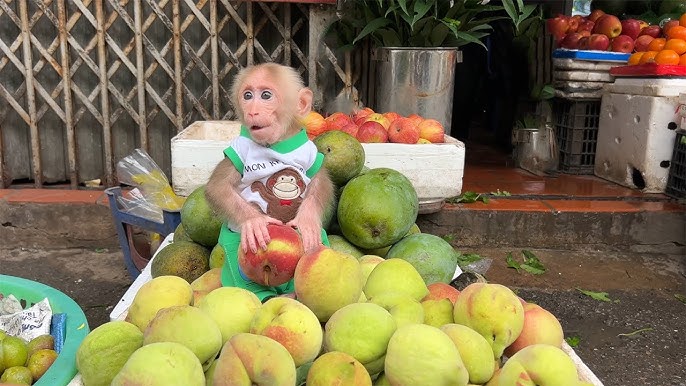
By Prince Charles Dickson PhD
In Nigeria, the road has become a stage where power performs its most absurd theatre. The siren—once a tool of emergency—now plays the soundtrack of ego. The convoys, longer than a bride’s procession, louder than a market quarrel, move through our streets like small invading armies. And every time that blaring, violent sound slices through the air, a simple truth echoes behind it: one day monkey go go market… and e no go return.
Because power, especially Nigerian power, has a short memory. And even shorter patience.
These leaders who move as though the sun itself must pause when they pass were once ordinary Nigerians. They once queued at bus stops, once waited under the rain for taxis, once navigated potholed streets with the same caution as every other citizen trying not to die by negligence. But somewhere between election and inauguration, ambition and arrogance, something snapped. Their feet left the ground. Their humanity blurred. And their ears, now accustomed to sirens; forgot how silence feels.
The bizarre culture of convoys in Nigeria has metastasized into something theatrical, violent, and deeply offensive. What began as protocol has become performance. Sirens scream not just to clear the road, but to announce hierarchy. Vehicles speed not just to meet schedules but to demonstrate superiority. And the citizens, the people in whose name this power is supposedly held, scatter like startled chickens. Or worse, end up dead under tires that never brake.
The irony is painful. The same leaders who demand absolute obedience from citizens once walked among those same citizens unnoticed. Once upon a time they lived without outriders, without black-tinted SUVs, without pickup vans carrying heavily armed security men who point guns at commuters as though Lagos traffic is a battlefield. They were once people. Now they behave like a species apart.
But the road remembers. The people remember. And power always forgets that it is a tenant, never a landlord.
Escorts in Nigeria don’t just move with urgency; they move with intimidation. They shove, push, threaten, and roar through roads where ordinary Nigerians are merely trying to survive the day. The siren becomes a weapon, the convoy a declaration of dominance. The message is clear: “Your life must move aside. My importance is passing.”
In what country should this be normal?
Even emergency vehicles; ambulances carrying dying patients, fire trucks racing to burning buildings, sometimes cannot pass because a government official’s convoy has occupied the road with the entitlement of royalty.
This isn’t governance; it’s theater of the absurd.
And the casualties are not metaphorical. Nigerians have died—pregnant women hit by convoys, okada riders knocked off the road, children flung away like debris. Drivers in these convoys behave like warhorses let loose, sworn not to slow down regardless of what or who is ahead.
But who will hold them accountable? Who dares question power that sees questions as disrespect and disrespect as rebellion?
The institutions meant to regulate these excesses are the same institutions that created them. Protocol offices treat speed like divinity. Security details mistake aggression for duty. Schedules are treated as holy commandments. Every meeting becomes urgent. Every movement becomes life-or-death. Every road must clear.
But the truth sits quietly behind all this noise: no meeting is that important, no leader is that indispensable, and no road should require blood to make way.
Somewhere, a child grows up believing public office means public intimidation. A young man sees the behavior of convoys and dreams not of service but of dominance. A young woman imagines that leadership means never waiting in traffic like the rest of society. And so, the cycle of arrogance reproduces itself. A country becomes a laboratory where entitlement multiplies.
In Nigeria, the convoy culture reveals a deeper sickness: a leadership class that has disconnected from the lived realities of the people they claim to govern.
When did proximity to power become justification for violence?
When did schedules become more sacred than lives?
When did we normalize leaders who move like emperors, not elected representatives?
But more importantly: how do these leaders forget so quickly where they came from?
Many of them grew up in the same chaos their convoys now worsen. They once asked why leaders were insensitive. Now they have inherited the same insensitivity and advanced it.
The convoy is more than metal and noise. It is a metaphor. It illustrates how Nigerian governance often operates: pushing the people aside, demanding unquestioned obedience, prioritizing position over responsibility.
And yet, the proverb whispers:
One day monkey go go market… e no go return.
Not because we wish harm on anyone, but because history has its own logic. Power that forgets compassion eventually forgets itself. Leadership that drives recklessly, morally, politically, and literally—will one day crash against the boundaries of public patience.
This metaphor is a quiet mirror for every leader who believes their current status is divine permanence. One day, the sirens will go silent. The tinted windows will roll down. The outriders will be reassigned. The road will no longer clear itself. Reality will return like harmattan dust.
And then the question will confront them plainly:
When your power fades, what remains of your humanity?
The tragedy of Nigeria’s convoy culture is that it makes leadership look like tyranny and renders citizens powerless in their own country. It fosters a climate where ordinary people live in perpetual startle. It deepens distrust. It fuels resentment. It reinforces the perception that leadership is designed to intimidate rather than serve.
And what does it say about us as a nation that we accept this?
We accept the absurdity because we assume it cannot be overturned. We accept arrogance because we assume it is the price of power. We step aside because we assume there is no alternative.
But nations are not built on assumptions. They are built on accountability.
The temporary nature of political power should humble leaders, not inflate them. Four or eight years or whatever time they spend clinging to office cannot compare to the lifetime they will spend as private citizens once the convoys disappear.
When the noise stops, will they walk among us head high or with their face hidden?
When the sirens lose their voice, will they find their own?
What if true leadership was measured not by how loudly you move through society but by how gently you walk among the people?
Imagine a Nigeria where power travels quietly. Where convoys move with the dignity of service, not the violence of entitlement. Where leaders move with humility, not hysteria. Where the streets do not tremble at the approach of authority. Where citizens do not shrink to the roadside, waiting to survive the thunder of tinted SUVs.
It is possible. It is necessary. It begins with leaders remembering that every journey through Nigeria’s roads is a reminder of their accountability, not their dominion.
Because one day, and it will come—monkey go go market.
The convoy will stop.
The siren will fade.
The power will dissolve into yesterday.
And the road will ask the only question that matters:
While you passed through, did you honor the people… or terrorize them?
History will remember the answer.
And so will we—May Nigeria win!
-

 Feature/OPED6 years ago
Feature/OPED6 years agoDavos was Different this year
-
Travel/Tourism9 years ago
Lagos Seals Western Lodge Hotel In Ikorodu
-

 Showbiz3 years ago
Showbiz3 years agoEstranged Lover Releases Videos of Empress Njamah Bathing
-

 Banking8 years ago
Banking8 years agoSort Codes of GTBank Branches in Nigeria
-

 Economy3 years ago
Economy3 years agoSubsidy Removal: CNG at N130 Per Litre Cheaper Than Petrol—IPMAN
-

 Banking3 years ago
Banking3 years agoSort Codes of UBA Branches in Nigeria
-

 Banking3 years ago
Banking3 years agoFirst Bank Announces Planned Downtime
-

 Sports3 years ago
Sports3 years agoHighest Paid Nigerian Footballer – How Much Do Nigerian Footballers Earn




